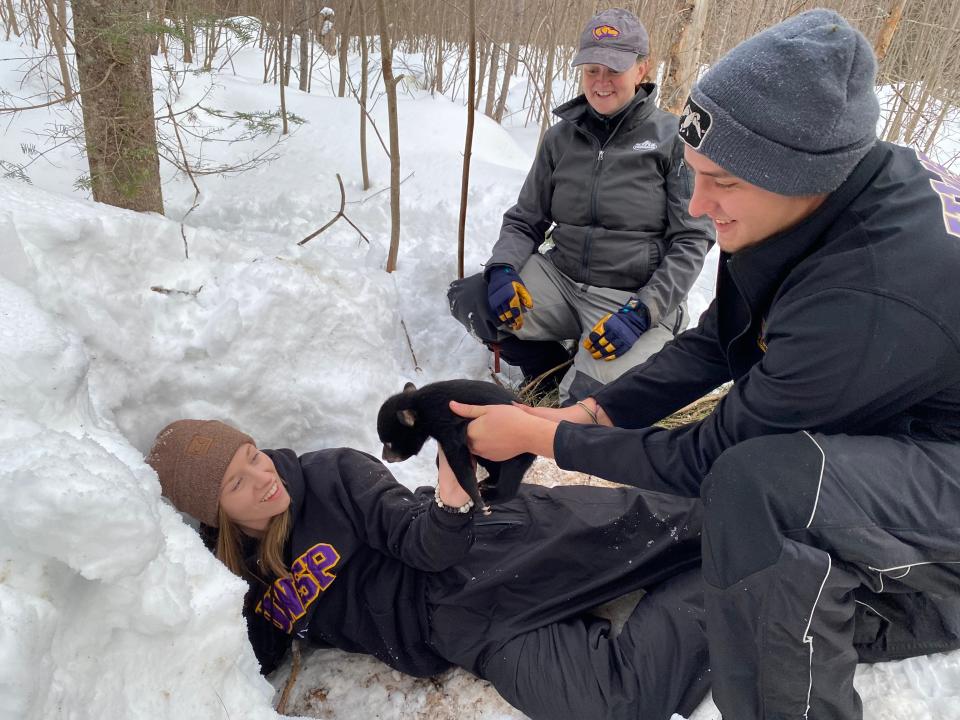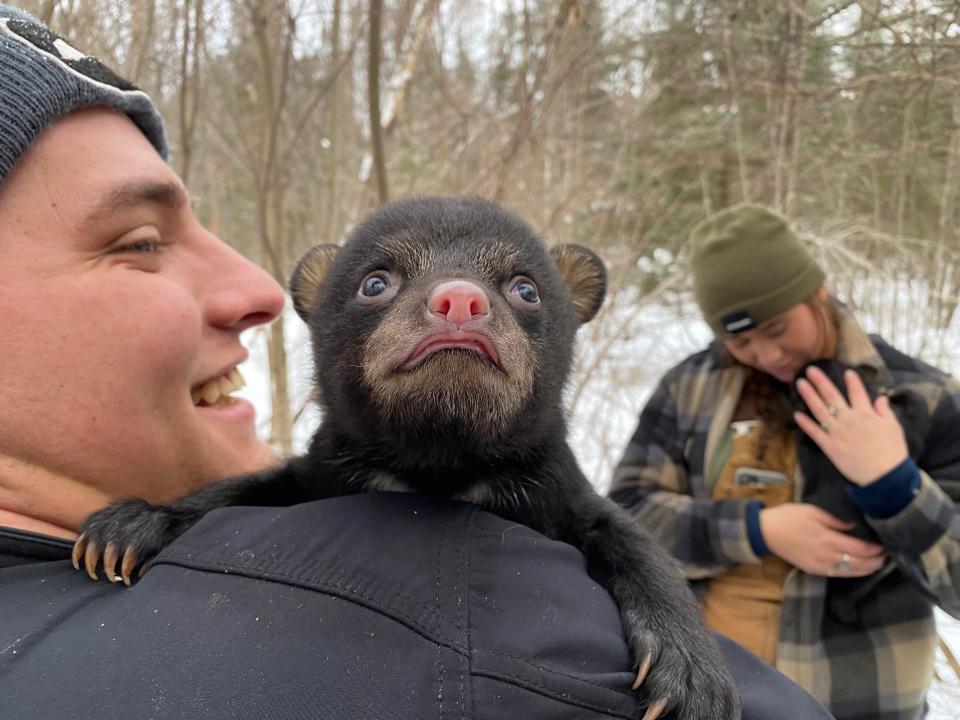A million-dollar endowment will keep bear research at UW-Stevens Point going in perpetuity

Black bear research conducted in Wisconsin by UW-Stevens Point faculty and students will stretch into perpetuity thanks to a $1 million endowment.
Announced Sept. 28, the new funding ensures the university will be able to continue work it has done since the late 1970s.
“As a testament to our unwavering commitment to wildlife conservation, these funds will enable us to conduct comprehensive research and promote education and training on black bear ecology and management,” Brian Sloss, dean of the UWSP College of Natural Resources, said in a statement.
The funding is from three sources: the Stephens Family Foundation Wisconsin Black Bear Research Project Endowment; the Searle-Dew-Thomas Boone and Crockett Wisconsin Black Bear Fellowship Endowment; and the Safari Club International Wisconsin Black Bear Research Fellowship Endowment.
More: Outdoors calendar
Christine Thomas, who retired in 2020 as dean of the College of Natural Resources, played a central role in securing the endowment.
In addition to contributing funds personally along with her husband, Stan, she worked to find donors over the last three years.
"We've known for while that to ensure the future of this (bear) work, we'd need to get a substantial, reliable source of funding," Thomas said. "The Stephens Family Foundation really opened the door and then we had other partners join in."
The Stephens Family Foundation contributed $500,000 to the endowment and the others made up the balance, Thomas said.
The university's bear project dates to the 1970s and is one of the longest-running studies of bear cub birth rates and survival in the nation.
It has also been extremely productive: About 60% of the scientific citations in the current Wisconsin bear management plan are from UWSP researchers, according to UWSP staff.
It has been led by UWSP staff including the late Ray Anderson, former professor Tim Ginnett and, since 2019, associate professor Cady Sartini.

Many findings of the university's bear work are published in a 2019 report titled "Black bear reproduction and cub survival." The paper utilized data from 116 female black bears in the UWSP bear project spanning 1989 to 2015; Ginnett is the principal author.
Among the findings: Wisconsin black bears have a relatively low mean age of first reproduction of 4.4 years, a high mean litter size of 2.5 cubs per litter and low average interbirth interval of 2 years. The data are likely indicative of "high resource availability in the study area," according to the researchers.
In a typical year, UWSP researchers track several bear sows via GPS collars.
Sartini also offers a black bear class to undergraduates. The course teaches wildlife field skills and includes a visit to a bear den in winter. About 30 undergraduate and graduate students are involved in the bear project on an annual basis, Sartini said.
The Stephens Family Foundation is based in Morton, Illinois, and has been a staunch supporter of conservation and the UWSP College of Natural Resources, according to university officials. Its funds will support all operations and needs of the college’s black bear research and education program.
The Searle-Dew-Thomas Boone and Crockett Wisconsin Black Bear Fellowship Endowment is funded by private individuals, including Stan and Christine Thomas of Stevens Point and Tom and Kristin Dew of Hayward. Its funding will support a research fellowship program, providing undergraduate and graduate student opportunities in the latest technologies for black bear research.
The Safari Club International Wisconsin Black Bear Research Fellowship Endowment is funded by multiple chapters of Safari Club International, including the Wisconsin Chapter, Badgerland Chapter, Bowhunters Chapter, Illinois/Chicago Chapter and Northeast Wisconsin Chapter. Its contribution will enhance the university’s ability to protect and conserve Wisconsin’s black bear population, according to UWSP.
Sartini said the new endowment will provide certainty to the university's bear work.
"This means everything," Sartini said. "Funding is hard to come by. Now I know we'll be able to continue to provide these opportunities for students, which is so important for their development, as well as continue with work the university has done for decades."
Sloss, the dean of the College of Natural Resources, said the financial contributions were "visionary."
“We are extremely grateful to everyone who has supported this cause," he said. “Their gifts will provide valuable knowledge and experience in black bear management to budding conservation professionals in perpetuity.”
The endowment will be invested through the University of Wisconsin. It is expected to produce about $40,000 a year for UWSP bear research, Thomas said.
THANK YOU: Subscribers' support makes this work possible. Help us share the knowledge by buying a gift subscription.
DOWNLOAD THE APP: Get the latest news, sports and more
This article originally appeared on Milwaukee Journal Sentinel: Bear research at UW-Stevens Point receives $1 million endowment

